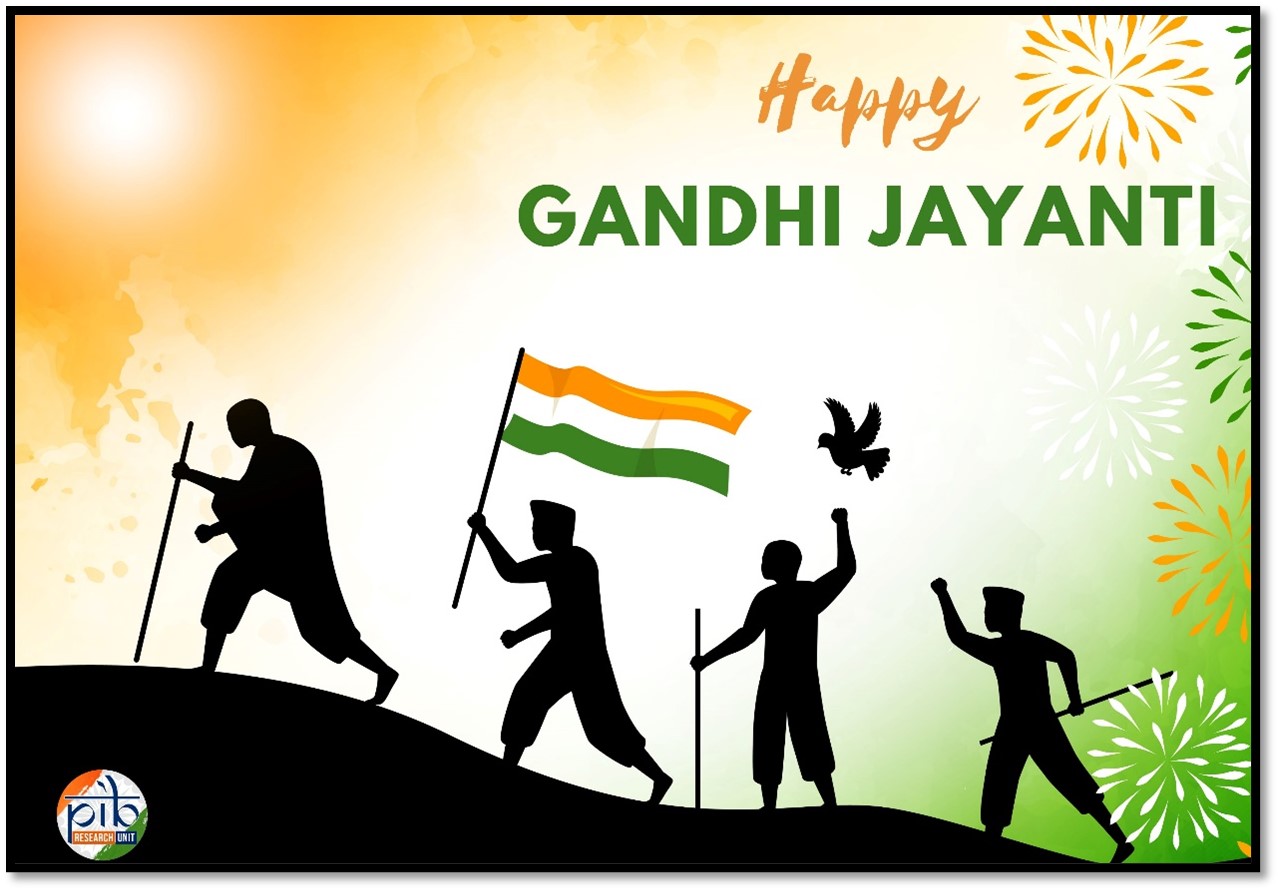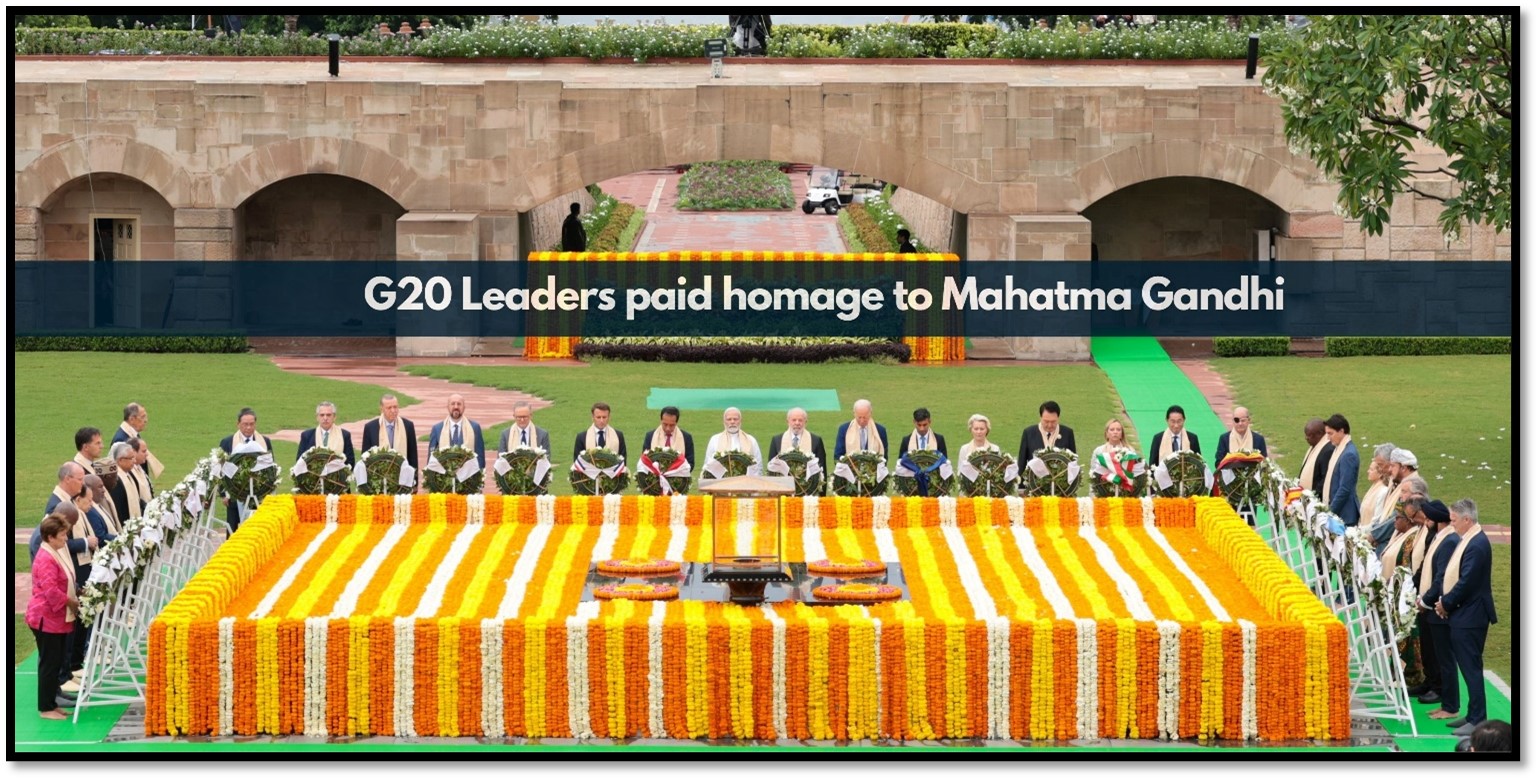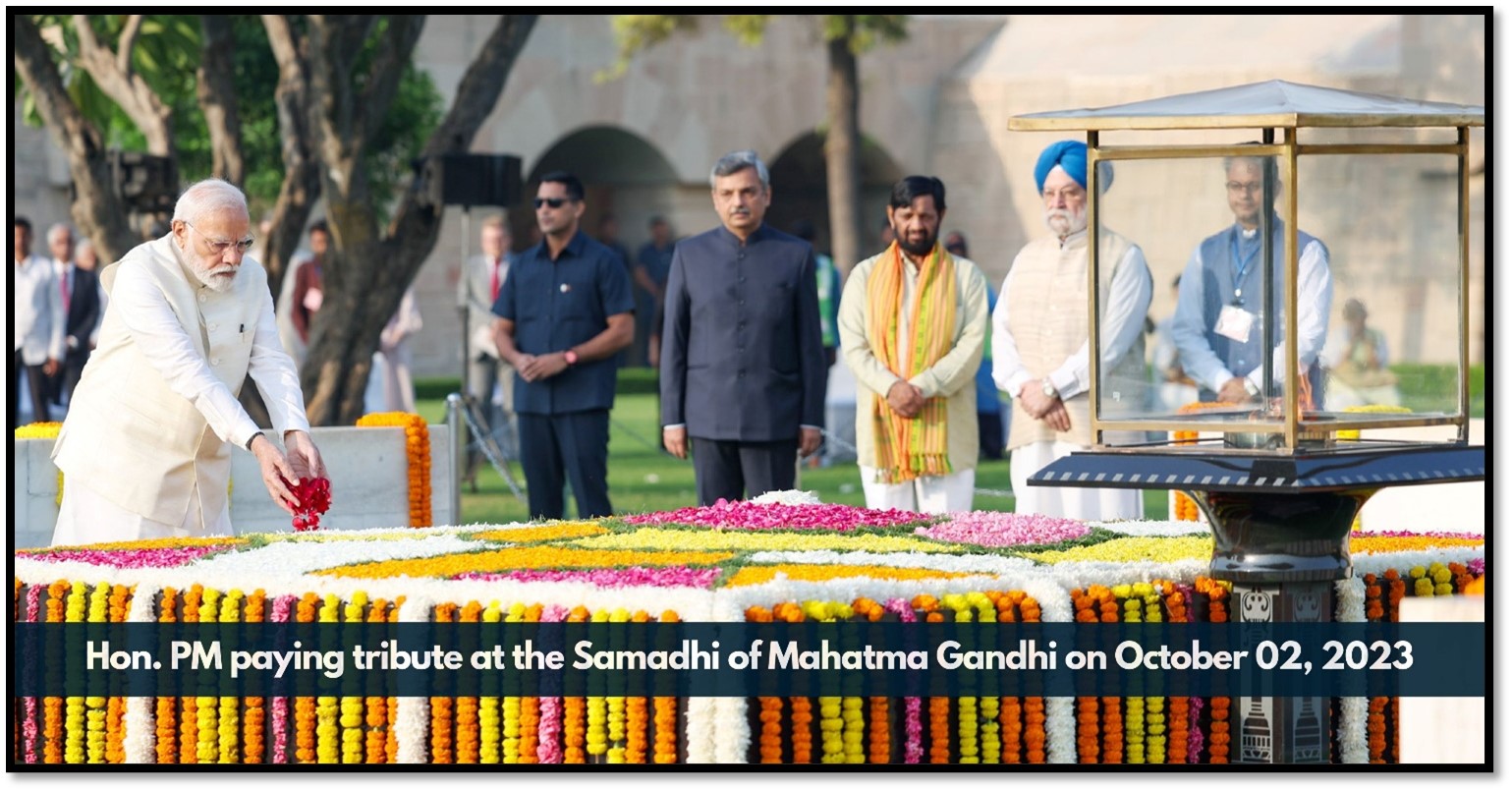International Day of Non-Violence Celebrates Mahatma Gandhi’s Legacy of Peace and Non-Violence
The International Day of Non-Violence, celebrated annually on October 2, marks the birth anniversary of Mahatma Gandhi, a global beacon of peace and non-violence. This day, proclaimed by the United Nations in 2007, serves as a reminder of the power of non-violence in shaping societies.
Gandhi’s Legacy of Non-Violence
Mahatma Gandhi’s philosophy of Satyagraha and non-violent resistance, remains one of the most potent forces for change in modern history. His peaceful protests against British rule, particularly the Dandi March in 1930, exemplified his belief in the power of non-violence to confront oppression. For Mahatma Gandhi, non-violence was not merely a political tool but a way of life, grounded in the belief that peace could only be achieved through peaceful means.

Mahatma Gandhi famously said, “Non-violence is the greatest force at the disposal of mankind. It is mightier than the mightiest weapon of destruction.” This belief continues to inspire movements around the world, from Martin Luther King Jr.’s fight for civil rights in the United States to Nelson Mandela’s struggle against apartheid in South Africa. His ideas influenced countless leaders and movements, underscoring the universal appeal of non-violence as a powerful instrument of resistance and reform.
Mahatma Gandhi’s Relevance in Today’s World
In an era marked by political, social, and environmental challenges, Mahatma Gandhi’s principles of non-violence resonate deeply. Terrorism, conflict, climate change, and growing inequality emphasize the urgent need for peaceful solutions. Gandhi’s belief in the intrinsic goodness of humanity offers a roadmap for healing divisions and addressing modern crises, including pandemics and poverty.
His philosophy reminds us that peace is not just a distant ideal but an achievable goal! His teachings offer a timeless message of hope and reconciliation.
Mahatma Gandhi’s wisdom extended beyond political resistance to touch on issues of sustainability. His famous quote, “There is enough for everyone’s need, but not for everyone’s greed,” underscores the link between non-violence and responsible resource use. In today’s context, his values of simplicity, conservation, and self-reliance are reflected in India’s initiatives like the Swachh Bharat Abhiyan (Clean India Campaign), which promotes cleanliness and environmental sustainability.
Global Commemoration of Non-Violence: Honoring Gandhi’s Legacy
The International Day of Non-Violence serves as a global reminder of Mahatma Gandhi’s enduring philosophy of peace and non-violence. Observed on his birth anniversary, this day pays tribute to the principles of non-violent resistance that he championed throughout his life.

Additionally, at the prestigious G20 Summit 2023 held in India, world leaders, including Prime Minister Narendra Modi, paid homage to Mahatma Gandhi at Rajghat. Prime Minister Narendra Modi emphasized that Mahatma Gandhi’s timeless principles of truth and non-violence continue to guide efforts towards achieving a more inclusive, harmonious, and peaceful future.
In 2022, the UNESCO Mahatma Gandhi Institute of Education for Peace and Sustainable Development (MGIEP) hosted a significant event at the United Nations Headquarters in New York to commemorate this day. A life-size hologram of Mahatma Gandhi led the panel discussion on education as a tool for promoting peace and sustainable societies. Key figures like H.E. Ambassador Ruchira Kamboj and Bernice A. King, daughter of Martin Luther King Jr., shared their perspectives on how Gandhi’s ideals remain deeply relevant in addressing modern challenges.
Celebrating Gandhi’s Legacy
Mahatma Gandhi’s teachings continue to profoundly influence India’s social and political framework. Various government departments and institutions actively uphold and promote his ideals, ensuring that Gandhi’s vision for a cleaner, self-reliant, and peaceful society is integrated into modern governance and public life.
Swachh Bharat Abhiyan (Clean India Mission), launched in 2014, stands as one of the most significant initiatives reflecting Mahatma Gandhi’s philosophy of cleanliness as essential to nation-building. The campaign, aiming to create a cleaner and healthier India, resonates with Gandhi’s belief that “cleanliness is next to godliness.” It motivates citizens to take collective responsibility for maintaining their surroundings, fostering both individual and community involvement.
The Swachhata Hi Seva (SHS) 2024 campaign, with its theme of ‘Swabhaav Swachhata, Sanskaar Swachhata’, was held from 17th September to 1st October. The campaign culminated with Gandhi Jayanti on 2nd October, marking the 10th anniversary of the Swachh Bharat Mission. The SHS campaign focused on promoting behavioral change and community participation to maintain cleanliness and sanitation across India.
On September 11, 2024, Union Minister of Culture and Tourism, Shri Gajendra Singh Shekhawat, inaugurated a special Railway Coach dedicated to Mahatma Gandhi at Gandhi Darshan, Rajghat, Delhi. This unique exhibit, donated by the Ministry of Railways, is a meticulously restored railway coach from the era of Mahatma Gandhi, symbolizing the iconic train journeys that played a crucial role in his mission to unite the nation and advocate for justice and equality.
During the inauguration, Shri Shekhawat explained that the rail coach is directly related to a transformative event in Mahatma Gandhi’s life and has been renovated to practically convey his vision. The exhibit provides an immersive experience enriched with sculptures depicting Gandhi’s travels and interactions with fellow passengers. Visitors to Gandhi Darshan can now relive these defining moments, gaining insight into Gandhi’s travels, which were instrumental in shaping his philosophy of non-violence and social justice.
This landmark moment is a fitting tribute to Mahatma Gandhi’s enduring legacy and his unwavering commitment to India’s freedom and unity.
Khadi: A Symbol of Self-Reliance and Sustainability
Mahatma Gandhi’s advocacy for self-reliance and sustainability continues to resonate through the promotion of Khadi, the hand-spun fabric that symbolizes simplicity and economic independence. The Khadi and Village Industries Commission (KVIC), annually celebrates Gandhi’s birth anniversary by promoting Khadi and encouraging rural empowerment. On Gandhi Jayanti 2023, the Khadi Bhawan in Connaught Place, New Delhi, set a new record with sales of Khadi products reaching ₹1.52 crore, reflecting the public’s commitment to supporting this symbol of self-sufficiency.

Digital Commemoration
In 2019, the Press Information Bureau (PIB) of India launched a special microsite, #Gandhi150, to commemorate Mahatma Gandhi’s 150th birth anniversary. The site featured rare video clips from the Ministry of Information and Broadcasting’s Film Archives, showcasing significant moments from Gandhi’s life, such as his travels, speeches on Ahimsa, and interactions with the public. This digital initiative has generated significant public engagement, and reached over 3.6 million impressions and promoted Gandhi’s message to newer generations.

Conclusion
The International Day of Non-Violence is a powerful reminder of the enduring relevance of Mahatma Gandhi’s teachings. By embracing non-violence, not only as a strategy but as a way of life, we can build a more harmonious and sustainable world for future generations. Through education, awareness, and the promotion of non-violent solutions to global challenges, we honor the legacy of Mahatma Gandhi and his profound contributions to humanity. His timeless message—that peace is achievable through non-violent action—continues to inspire millions around the world.

